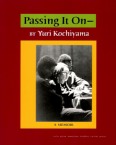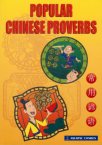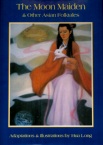|
LC: We're here with Hiroshi Kashiwagi author of Swimming in the American and new recipient of the American Book Award given by the Before Columbus Foundation. Congratulations. Let's start with a standard question - how does it feel? We missed your award ceremony, did you get a chance to give an acceptance speech and what did you say or if you did not get a chance to speak, what would you have like to have said?
HK: As for the American Book Awards event I will send you a copy of my acceptance speech (Click here to read the speech). I got quite a few good comments on it. At least, it was short and not so drawn out as some of the other acceptances were. I guess it was funny but it revealed our state of mind (my wife's and mine) when we learned of the award. Also, I was trying to show how someone of my age felt and reacted. I feel great about the recognition.
LC: Talk about the making of your book. The process - why, how, and when did you get started? Discuss the difficulties writing about embarrassing and/or painful memories.
HK: Actual work on the book started about a year and half ago. It almost seems like the book just came together. I say that because I think I always had a book in mind as I was writing through the years. For this book I started from the beginning--birth, early years on the farm, the move to the store in town, the depression years, my father's illness that forced us to live for two years with friends in the country. Then we moved back to town where father resumed the business at another location. I had materials on this period and I also had written quite a bit about the war years, especially the period before going to camp. I had covered the camp in the play "Laughter and False Teeth," which dealt with my mother's dental problems as well as the moral breakdown of the people in camp. Much of the section on camp life and experience was written for the book. A lot of it was based on research. The chapter on the lawyer Wayne Collins was based both on memory and research. The affidavit prepared by Mr. Collins was based on answers I had provided to the questions that he had circulated to all his clients. So the affidavit is pretty much in my voice. The chapter on my life as a writer and actor and reader was written after my editor suggested it. Of course, the play "The Betrayed" was already written and had been performed several times.
The poems were all written previous to working on the book. I must give credit to my editor Tamiko Nimura for the placement of the materials and shaping them into book form. By the time I applied for the California Civil Liberties Public Education Program grant the book was already written. The grant I received was used to publish the book.
Embarrassing or painful memories. I had a few; I guess I re-wrote them several times as I pondered how to deal with them. I decided I would treat them as honestly as I could. However, my friend wondered how some of the sexual references would go over in the "Bible Belt."
LC: How did you come up with the title?
HK: The title of the book is a story in itself. The original title was "I Nearly Drowned in the American River," which I had used for a one-man show I did once. I decided that it was too specific for the book so I changed it to "Swimming in the American River," then the "River" was dropped. This was quite a bold move but I had a feeling it was right but I had a comment that it was confusing so I was about to put "River" back in when Florence Hongo said she liked "Swimming in the American." By then the title was also part of the grant application so it remained and I'm proud of it.
LC: Any tips for others that wish to write their autobiographies?
HK: Tips for writing memoirs--write honestly, fearlessly. Having a good editor helps too--not too intrusive but savvy. Now, if you're writing for your children to leave them a record of your life--that's a little different. It's a great thing to do but in my case I was writing for myself just as I've been doing all my life.
LC: I just saw an interesting movie called Eternal Sunshine of the Spotless Mind. Essentially it's about people that purposely remove painful memories from their minds and the consequences of this memory loss. In your book you mentioned your lost years during the war and post war - was part of the problem you had attributable to your desire to trying to forget the painful memories of your war time incarceration at Tule Lake Internment Camp?
Speak to us about the issues of memory - is it important to hold on to or at least remember the painful memories too? You have quite a bit of experience in play writing and story telling - what are your thoughts about the purposes of telling tragic and/sad stories?
HK: The following is from the point of view of a writer. Memories are important to writers, especially in writing autobiographies, whether painful or happy. Memories are raw materials that he mines. When dealing with memories that are especially painful or unpleasant, I think the writer steps aside to save his sanity: sometimes writing becomes a cathartic experience. Tragic or sad stories are part of life and should be treated equally with happy stories.
LC: One of the things I didn't realize was the initial stigma attached to being at Tule Lake. Today, for people that didn't live through the internment experience, it kind of has a reverse image as a place where people stood their ground against the unfair policies of the war time incarceration. After I read your book, I found it kind of ironic that, at Tule Lake, group behavior and the fears and anger stemming from it, were major factors in many people's decision to take a resistive stand. Are we basically flotsam on the currents of history? In other words, is our sense of control partly an illusion? For example, some people believe that Fred Korematsu was really just an accidental hero.
|
HK: Tule Lake stigma. Yes, there was stigma about Tule Lake. Tuleans were partly responsible--their uncertainty about their decision and feelings of guilt that they betrayed America. But it was a difficult time--so much emotion, rumors, pressure, and violence. Yet, basically Tuleans were reacting to the injustice. Blame the government for that.
LC: Your play "The Betrayed," at the end of Swimming in the American, beautifully illustrated the complex decisions people were faced with over the answering of the infamous internment camp questionnaire. The two characters of the play are people that took different stands on questions 27 and 28. The character Tak Fujimoto appears to be loosely based on yourself. Was the character Grace Tamura based on a real person or is she just a reflection of yourself that you used to debate the many thoughts that have gone through your mind all these years? Please discuss a little about the making of this play.
Side note for those of you reading this that are unfamiliar with the questionnaire, the two most controversial questions were numbers 27 and 28. Men answering no to both questions are often described as being No-No Boys. The way internees answered these questions caused deep divisions among them. To this day, some former internees still find strong contention with those that answered differently. Here are the questions.
No. 27: Are you willing to serve in the armed forces of the United States on combat duty wherever ordered?
No. 28: Will you swear unqualified allegiance to the United States of America and faithfully defend the United States from any or all attack by foreign or domestic forces, and forswear any form of allegiance or obedience to the Japanese Emperor, or to any other foreign government, power or organization?
HK: Actually, the loyalty registration was an order by both the War Relocation Authority (WRA) and the U. S. Army. The WRA wanted to screen us (make sure we were loyal Americans) in order to remove us from the camps and the Army wanted to recruit volunteers for a special unit that became the 442nd Battalion.
In "The Betrayed" yes, Tak is based on myself as a country bumpkin: perhaps a bit exaggerated. Grace, on the other hand, is a figment of my imagination. She is a bit idealized. True, she is the other side of me-the struggles I went through in coming to a decision. I made her a native of Seattle because I wanted her to be urban, sophisticated and educated. Actually, I had been to Seattle a couple of times (after the war) and I knew that many Issei Japanese there were hotel managers. After writing the play, a few years later, I was in Seattle again and I was surprised to find how provincial it was with deep divisions within the community.
As for the play, for a long time it was a short play titled "A Question of Loyalty" with Tak and Grace trying to overcome their differences on the loyalty questions. Then I worked with the Talespinners Theater in San Francisco and I was determined to develop a full-length play. In the second act which takes place 40 years later, I opted to deal with the consequences of the loyalty questions, how people's lives were affected by their actions in camp, the decisions they made when they were very young. No matter what positions we took, we all paid dearly. Again blame the government.
LC: I loved your chapter entitled Dominguez and the related poem Remembers. Dominguez told of an incident where you witnessed discrimination from a local druggist against a Filipino farm worker friend of yours. That same druggist turns on you years later, right before your evacuation to an internment camp, as described in your poem Remembers. Did the incident with Dominguez at the drug store enter your mind when Mr. Stevens the druggist failed to serve you too? You hinted that you could sense Dominguez's pain - was the lesson of the extent of Mr. Stevens' racism completed when you were directly discriminated against?
HK: The poem "Remembers" is the angriest piece in the book. In "Dominguez" the narrator was a 13 year old kid, hardly aware of the druggist's bigotry toward his friend Dominguez.
Years later in "Remembers" when he is refused service he is 19 being forced to leave his home town and the rejection by Mr. Stevens who to him represents the town makes him realize that he had been a racist all along.
LC: What's up next? In Swimming in the American you hinted at possibly creating a book from a collection of your plays, is this a possibility? How about a book of your poetry? Any interest in writing a novel? Are you working on any new plays? Is there any chance that some of your plays may be translated to film? I think "The Betrayed" would translate well to film or video and should be seen by students everywhere. Note to teachers - don't wait for the film, buy the book and put on your own stage performance of this play.
HK: I've been thinking hard about writing something new. Also I have looked at some other things that I had written and put away. With some re-writes maybe they will work with some new things that I might do. My next book will definitely be a collection of my plays. I have asked my son Soji to type them but he is pretty busy with his life as a producer of shows. But he has typed several of the plays. I don't want to type them myself; I'm afraid I'll get bogged down re-writing them. The plays represent a certain period of Japanese American history and also a certain point in my development as a writer. I'm reading some poetry and hope to write some new ones. I think my strong point is humor; I love to be funny in my writing and as a stand-up.
I've also thought of looking at my journals (I've kept a diary since 1970) and put together excerpts from them. Or I might find ideas in them that I can expand into stories though I don't think I would do novels.
LC: Thank you.
|





